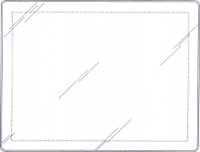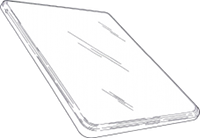
According to a filing by Apple in the two companies' US patent case, the European Commission has reached out to Apple as part of an investigation into Samsung's licensing of essential mobile technology.
Specifically, they are trying to determine if Samsung is violating FRAND (Fair, Reasonable, And Non Discriminatory) licensing rules.
The commission confirmed this in a statement, saying (via Reuters):
The Commission has indeed sent requests for information to Apple and Samsung concerning the enforcement of standards-essential patents in the mobile telephony sector.
Core technology for mobile communication standards, being essential to modern mobile phones and carrier networks, is subject to FRAND rules. These rules are designed to ensure a company like Samsung isn't allowed to take unfair advantage of other companies who need to license their patents for standards compliance.
Samsung has made it clear they would be happy to license Apple's iPhone and iPad related patents. But since Apple has made it equally clear they have no intention of entering into such an agreement, Samsung's response has been to hit back with patent claims of their own.
This is where the 3G patents come into the picture. Unlike Apple, Samsung's mobile patents primarily consist of core technology, so predictably that has been the primary focus of their counter claims. Apple argues they are already covered by the licenses from component manufacturers. In legal terms this is known as patent exhaustion.
When a patent holder licenses their technology to a component manufacturer, they may not also demand royalties from a company using that already licensed component in some device. Apple claims Samsung is attempting to do just that. Apple has already gotten court orders in the US which will give them access to agreements Samsung has with Intel and Qualcomm which should answer that question one way or the other.
However, Samsung also claims Apple is using other, unlicensed components and obscuring that fact to avoid paying licensing fees for them. That, presumably, is the reason they are requesting access to iPhone 4S firmware code in their Australian lawsuit. If true, it would strengthen their case against Apple, but only for collecting royalties; certainly not as a bargaining chip to force Apple into a cross-licensing agreement.
Because the patents fall under FRAND rules, Samsung is required to offer licenses to Apple, and the terms of those licenses will have to be equivalent to what they offer everyone else. Apple, on the other hand, is not required to offer anyone use of their patents because they are not included in any industry standards.
Despite that difference, Apple should pay close attention to the scrutiny their lawsuits are attracting. Their cases are not without their own problems. In particular, some of their patents, such those covering the swipe to unlock feature, appear to be problematic.
While there is no doubt the iPhone was a revolutionary device, that doesn't mean the technology which went into it was new, unique, or, more importantly, patentable. The more aggresively they pursue lawsuits based on those claims, the more closely those patents are likely to be scrutinized.
As will the Community Design they registered in the EU. That design is the biggest piece of their lawsuits against tablet makers big and small in the EU. It also appears to be a textbook example of out of control intellectual property laws. The design they are defending is essentially the most generic possible design for any tablet.
It is equivalent to a car maker getting protection for making squarish metal boxes with hinged doors on both sides, openings on the front and back for an engine compartment and storage, and four tires underneath. It is simply not the sort of thing Community Designs were intended to protect. The more generic and basic your device's design is, the more similar competing products will look. That's not infringement. It is common sense.
The design issue has gotten relatively little attention outside the tech world, but as Apple continues to prosecute lawsuits around it, that will almost certainly change. For the time being, Apple has been relatively successful of potraying themselves as a victim in all this. The more successful they are at eliminating the competition, the less sympathy they are likely to generate.
In the long run, these lawsuits aren't good for anyone. If Apple is successful, their competitors are hurt because they must waste money coming up with alternate technology to skirt Apple patents. Apple would also suffer in that scenario because those alternate technologies will be patented, meaning Apple won't be able to copy and improve on them. That has always been a cornerstone of Apple's success.
If Apple loses, it means millions of dollars wasted on lawsuits which ultimately have no effect. And more importantly, no matter how these cases turn out, consumers lose by paying a higher premium for their phones and tablets to subsidize this legal theater of the absurd.
It is almost impossible to imagine Apple will be able to litigate Android out of existence. With the passing of Steve Jobs it is debatable how much will they have left to try. But even if they do, another competitor, either Windows Phone or something else, will take its place. The market is too big and lucrative for that not to happen.
The iPhone didn't become the market leader because of weak competition. It got there based on its own quality and innovation. As long as Apple continues to remain competitive in those areas, there's no reason it won't stay popular. If they don't, it will fail no matter what the competition does.
Written by: Rich Fiscus @ 4 Nov 2011 11:59





